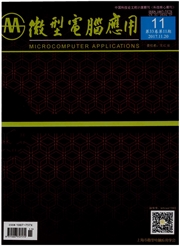

 中文摘要:
中文摘要:
量子计算是21世纪热点研究的方向。在传统经典通信框架中,最优的多用户接收机(最大似然多用户接收机)通常由于其算法的高复杂性导致很难用在大量多用户的场景中。分析了量子计算中常用的算法,提出利用Grover搜索算法的并行性来优化多用户接收机的复杂度。经过分析,研究的搜索算法可以把复杂度降到原有算法的开方级。把提出的改进算法用于自由空间光IDMA的通信系统中,提出了一种利用量子计算的软入软出(SISO)量子多用户接收机,并且和传统空间光IDMA散弹噪声下的性能做了对比。数值仿真的结果显示,所提出的量子计算方法优于次优软干扰消除算法,和最优贝叶斯算法性能一致,并且复杂度显著降低,仅为最优贝叶斯算法复杂度的开方级。
 英文摘要:
英文摘要:
Quantum computation is a hot researching spot in the 21 century. In classic communication schemes, the optimal multi-user detection(such as maximum likelihood multiuser detector) often has a high complexity so that can not be applied in the numerous users situation. In this paper, we analyze the common algorithm in Quantum computation firstly, then we apply the Grover searching algorithm to optimize the performance of classical multi-user detector. Through analyzing, the algorithm proposed can achieve a quadratic reduction in the computational complexity. At last we apply the new algorithm to the tradi- tional IDMA(interval-division multiple access), propose a soft-input soft-output multi-user detector based on the Quantum al- gorithm. We compare it with the traditional IDMA in the Gaussian and Poisson cases. According to the simulation results, the algorithm proposed has performance better than SOIC(soft), equals to the OB(optimal Bayes) algorithm, and it can achieve a quadratic reduction as we analyze before.
 同期刊论文项目
同期刊论文项目
 同项目期刊论文
同项目期刊论文
 期刊信息
期刊信息
